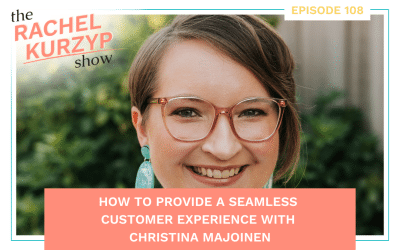You may have heard these terms before: The Buyer Persona, Target Market, Customer Personas, Audience Segments, and so on. Did you know all these terms roughly mean the same thing?
Yeah, it can be a little confusing because marketers do love their buzzwords and jargon. But don’t worry. I guarantee after reading this post, you’ll be well on your way to having this whole customer persona, marketing thing under control.
So what is a customer persona then?
“an archetype, a composite picture of the real people who buy, or might buy, products like the ones you sell”.
Put simply, they are fictional profiles you create to help you better understand your ideal customer. To create accurate profiles you will need to do a little research and use your existing business data.
To be clear, a persona is not the same as your target audience. A “target audience” considers demographic and geographic data such as gender, income, and location. A “persona” will also take into consideration behavioural insights such as the problems your customer is trying to solve and the challenges they face.
Why you need customer personas
Everyone is always banging on about customer personas. And at first, I was like you; skeptical and couldn’t really see the benefits of having them.
I’ve always been pretty good at defining my ideal customer and I knew who they were roughing in my head. But it wasn’t until I sat down to write the customer personas I realised I’d been assuming a lot. Not all my assumptions were spot on either, and I was surprised by what my data told me.
There are several reasons why having clearly defined customer personas are important:
Greater understanding
Creating customer personas helps you define the needs, wants and desires of your ideal customers and ensures you understand your audience.
Knowing your audience will help you make better decisions around your product design, marketing campaigns, business decisions, and more.
Improved messaging
If you understand your customers needs, wants and the problems then you can easily write targeted messages for them.
Your business communications will be relevant and your message will be clear, which together will improve the effectiveness of your marketing.
Better insight
Once you have defined your customer personas you can then do a deeper analysis into which of these personas will make the best customers for your business, and then focus your efforts on them (This is how I was able to create my tailored packages).
How to find your customer information
So where do you get all the information you need to make a customer persona take shape? There are many sources of information on your audience, from the tiny details in your site statistics to actual conversations with real-life customers.
Make a list of all the different ways you interact with your customer and start from there.
Here are three places you should definitely look:
Website analytics
Use your analytics to see where your visitors came from, what keywords they used to find you, and how long they spent once they arrived.
This data is key for creating customer personas as it can reveal what led your audience to your site as well as how they got there.
Social media analytics
You can also learn a lot about your customers by using your social media platforms inbuilt analytics.
Use Facebook Page Insights and Twitter Activity to learn when your customers are online, where they are located, what types of content they have found most engaging, and lots more.
You can also use social media to listen in on what questions and problems your potential customers are having, and what topics they are interested in right now.
Customer surveys
Who knows your customers better than they know themselves? Surveys and interviews are a critical component to building a useful customer persona.
Interviews can reveal deep insight into your customers because they allow you to ask them questions around their goals, values, and pain points that are harder to address in surveys.
To ensure your customer personas are useful, its best if they’re based on interviews gathered from salespeople, customer service interactions, and the customers themselves.
When you survey or interview your customers ask them these types of questions:
- What’s important to you?
- What’s pushing you to make a change today?
- What’s preventing you from making the change?
- How do you go about implementing change?
- Who do you turn to for advice or information?
- What could get in the way of you making the change?
Customer Persona Template
Feel free to use this template to ensure you’re collecting all the basic information. But don’t forget to add your own specific questions based on your audience and the problem you’re trying to solve.
Basic
Name of the persona:
Occupation:
Job title:
Demographics
Age:
Gender:
Salary / household income:
Location: urban / suburban / rural:
Education:
Family:
Goals and challenges
Primary goal:
Secondary goal:
How you help achieve these goals:
Primary challenge:
Secondary challenge:
How you help solve these problems:
Values / fears
Primary values:
Common objections during sales process:
Additional
Hobbies:
Real quotes from interviews with customers:
Computer literacy level:
Experience with the topic:
Where they get their news:
Blogs/books they read:
Where do they spend their time (online and offline):
What brands do they like?
Has this made creating a customer persona less scary? What interesting insights have you discovered about your customers? Let me know in a comment.
Featured image from Pexels.





